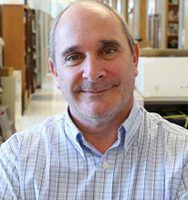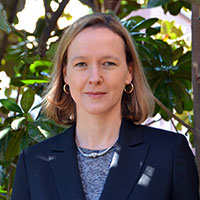UNC SRP researchers respond to COVID-19 with new research and resources to increase understanding of risk, susceptibility factors
Since March of this year, researchers within the UNC SRP have been adapting to lab shut-downs and re-openings, new lab protocols to limit exposure to the coronavirus, and adjusting to the everyday uncertainties that have come into play during the COVID-19 pandemic. Even as they navigate this new way of conducting research, UNC SRP scientists have actively responded to COVID-19 by developing new studies and resources to help answer some of the many questions about SARS-CoV-2 infection and COVID-19 disease.

Dr. Praveen Sethupathy
Earlier this year, Praveen Sethupathy, Project 1 lead, was awarded a Cornell seed grant to investigate how a specific microRNA, miR-200c, may suppress the immune response to SARS-CoV-2 in the gastrointestinal tract, where symptoms are increasingly evident in COVID-19 patients. Dr. Sethupathy will test whether high levels of this microRNA actually suppress a receptor that has been shown to be the primary entry mechanism for SARS-CoV-2, called ACE2.
This is particularly relevant for colon cancer patients who may be at increased risk for SARS-CoV-2 infection, as well as individuals who may have experienced arsenic exposure. Dr. Sethupathy and his team hope discoveries from this research could open novel avenues for therapeutic intervention.
Learning how environmental exposures contribute to severity of COVID
In September, the UNC Superfund Research Program received two new supplemental grants from the National Institute of Environmental Health Sciences to increase understanding of how environmental exposures may contribute to the risk of SARS-CoV-2 infection.

Dr. Fernando Pardo-Manuel de Villena

Dr. Ilona Jaspers
In the first study funded by these supplements, Project 2 researchers, led by Dr. Fernando Pardo-Manuel de Villena, working with Dr. Ilona Jaspers, Research Experience and Training Coordination Core lead, and her lab, aim to increase understanding of how exposure to inorganic arsenic affects risk of SARS-CoV-2 infection and subsequent severity of COVID-19 disease.
Dr. Jaspers’ lab will identify the effects of inorganic arsenic and its metabolites on SARS-CoV-2 infection in a human cell model, differentiated primary human nasal epithelial cells, an established model for respiratory infections. The interaction between SARS-CoV-2, a lung pathogen, and arsenic exposure, which is known to exacerbate respiratory infections, has never been studied.

Dr. Mirek Styblo
Dr. Pardo-Manuel de Villena in collaboration with Dr. Mirek Styblo will lead experiments using the novel humanized hAS3MT mouse model, in which the metabolism of arsenic and disposition of its metabolites resemble those in humans, to characterize the effects of arsenic exposure on a model of SARS-CoV-2 infection adapted to mice and COVID-19 outcomes in hAS3MT mice. The mouse-adapted model of SARS-CoV-2 infection was also developed at UNC.
Developing new public health tools
In the second study, Data Management and Analysis Core (DMAC) researchers will investigate the combined effects of environmental stressors and social stressors, such as poverty, income inequality, or unemployment, on an individual’s susceptibility to COVID-19. As with environmental stressors (such as exposure to inorganic arsenic through drinking water), social stressors have also been shown to suppress immune function. Researchers are interested in understanding if the combined effects of environmental and social stressors further increases susceptibility to disease risk. One important outcome of this project will be the development of the publicly accessible NC-ENVIROSCAN web portal – an innovative public health tool that will be used to assess areas of concern related to combined stressors and COVID-19 infections.
Engaging high school biology classrooms

Dana Haine
To bring this timely and relevant research to broad audiences, CEC staff are partnering with SRP scientists to develop activities for high school biology teachers seeking to incorporate COVID-19 into their instruction. Science educator, Dana Haine is collaborating with Dr. Pardo-Manuel de Villena and Dr. Jaspers to create new activities and ancillary instructional materials showcasing how researchers are developing new solutions to both prevent exposure to the virus and to treat COVID-19. These activities will allow teachers to introduce cutting edge science, including research-generated data, into their classrooms while fostering awareness of biomedical careers. After materials are developed, they will be piloted by NC teachers and made available through the UNC SRP website and the PEPH Resource Center.

Dr. Rebecca Fry
“This is an amazingly diverse and strong team of investigators focused on novel methods to reduce and prevent the harm of SARS-CoV-2 in the context of the environment ” remarked Dr. Rebecca Fry, UNC SRP director.
The Superfund Research Program seeks to develop new solutions for reducing exposure to inorganic arsenic and to prevent arsenic-induced diabetes through mechanistic and translational research. An estimated ~3 million individuals — representing one-third of the population of North Carolina — drink water from private wells, with iAs concentrations in some regions ranging up to 800 parts per billion. These populations are largely located in rural areas of the state, prompting environmental justice concerns.
